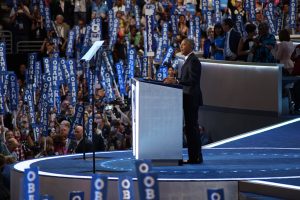President Obama bans drilling in Atlantic and Arctic Oceans
Today, in a statement by the White House Press Secretary, President Obama announced, “[D]ue to the important, irreplaceable values of its Arctic waters for Indigenous, Alaska Native and local communities’ subsistence and cultures, wildlife and wildlife habitat, and scientific research; the vulnerability of these ecosystems to an oil spill; and the unique logistical, operational, safety, and scientific challenges and risks of oil extraction and spill response in Arctic waters – the United States is designating the vast majority of U.S. waters in the Chukchi and Beaufort Seas as indefinitely off limits to offshore oil and gas leasing, and Canada will designate all Arctic Canadian waters as indefinitely off limits to future offshore Arctic oil and gas licensing, to be reviewed every five years through a climate and marine science-based life-cycle assessment.”

Chukchi and Beaufort Seas
The ban on exploration and drilling coincides with a similar move by Canadian Prime Minister Justin Trudeau. The White House statement said, “Today, for its part, Canada is committing to co-develop a new Arctic Policy Framework, with Northerners, Territorial and Provincial governments, and First Nations, Inuit, and Métis People that will replace Canada’s Northern Strategy. The Framework will include priority areas identified by the Minister of Indigenous and Northern Affairs’ Special Representative, such as education, infrastructure, and economic development. The Framework will include an Inuit-specific component, created in partnership with Inuit, as Inuit Nunangat comprises over a third of Canada’s land mass and over half of Canada’s coast line, and as Inuit modern treaties govern this jurisdictional space. In parallel, Canada is reducing the reliance of Northern communities on diesel, by deploying energy efficiency and renewable power. Canada will also, with Indigenous and Northern partners, explore how to support and protect the future of the Arctic Ocean’s ‘last ice area’ where summer ice remains each year.”

President Obama drew upon the Outer Continental Shelf Lands Act to enact this ban. The statement said, “Taking into account the respective obligations of the United States and Canada under international law to protect and preserve the marine environment, these steps also support the goals of various international frameworks and commitments concerning pollution, including those reflected in the 1990 International Convention on Oil Pollution Preparedness, Response, and Cooperation, the 2013 Agreement on Cooperation on Marine Oil Pollution Preparedness and Response in the Arctic, and the U.S.-Canada Joint Marine Pollution Contingency Plan. Furthermore, with respect to areas of the Beaufort Sea where the U.S.-Canada maritime boundary has not yet been agreed, these practical arrangements are without prejudice to either side’s position and demonstrate self-restraint, taking into account the principle of making every effort not to jeopardize or hamper reaching a final maritime boundary agreement.”
Using the Outer Continental Shelfs Act, the ban also includes deep canyons of the Atlantic Ocean, “… running from Heezen Canyon offshore New England to Norfolk Canyon offshore the Chesapeake Bay,” off Virginia’s coast. The statement says those areas provide habitat for, “… deepwater corals, deep diving beaked whales, commercially valuable fishes, and significant numbers of habitat-forming soft and hard corals, sponges, and crabs.”
The plan can be revisited every five years for review and does not affect any current drilling operations. To date, President Obama has protected more marine habitat than any other president in history.
Conservation groups are hailing these actions, which will protect the oceans and beaches from oil spills, but advocates for the fossil fuel industry called it an abuse of power that is a threat to national security and will end job opportunities for people in the oil industry and shipyards.
Top Photo: Protesters in kayaks blocking an oil rig in Seattle, WA (YouTube)

Baltimore Post-Examiner is run by a creative cadre of dedicated journalists – some who worked at the Washington Post, Baltimore Examiner and other regional and national publications. It’s the Post-Examiner because we love the play on the word “Post” but we are also hoping to answer that question: What’s next after newspapers? We see a lot of websites come and go – and many simply are not making it for various reasons. We have been a model of success since we launched in 2012 with “a little bit of everything” and we aim to continue to break that cycle of websites coming and going.
